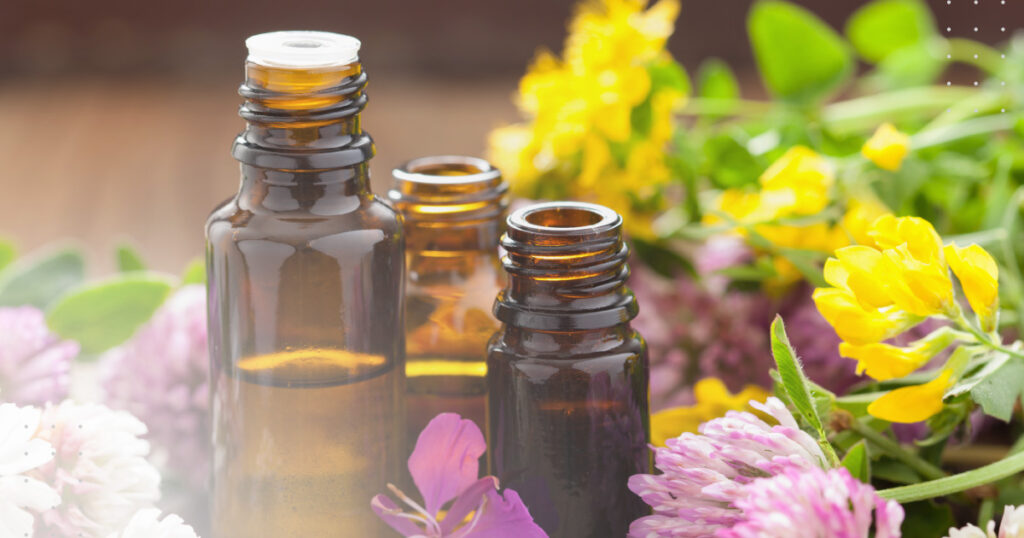
Ever heard of using essential oils for dental health? These aromatic and potent extracts have actually been making waves in the world of holistic healthcare.
Essential oils are derived from plants, boasting a diverse range of over 3,000 varieties. Throughout history, certain oils have served as traditional remedies for many illnesses. Enthusiasts believe in the therapeutic properties of essential oils, advocating their effectiveness in addressing issues such as heartburn, dandruff, enhancing energy levels, uplifting moods, and even boosting cognitive functions, including memory and learning.
How are essential oils used?
Whether through ingestion, aromatherapy (inhaled through diffusers), added to bathwater, applied directly to the skin, or used in personal care items or household cleaning products, using essential oils is simple.
However, for all the positive attention surrounding essential oils, the question remains: do they work? If yes, do they affect your oral health positively? The answers may be a bit complicated, but on the other hand, it’s worth exploring both its benefits and potential side effects.
Possible benefits of essential oils
Essential oils can help in several areas, including:
- Fighting cavities and gum disease – Certain essential oils, like tea tree, peppermint, and eucalyptus are used in mouthwashes and toothpaste. By doing so, they help reduce the presence of bacteria in the mouth, leading to improved oral health without requiring direct application.
- Essential oils can be beneficial in treating thrush, an infection that manifests as white patches in the mouth. Clove, lemon, cinnamon, and tea tree oils have antioxidants that help in fighting thrush infections.
- During times of stress, essential oils like orange and lavender are a favorite for aromatherapy, offering relief from anxiety and pain. These oils have the ability to help with relaxation and promote stress relief.
- Revitalize your breath with the use of peppermint essential oil, which is often responsible for the refreshing minty flavor and cooling sensation found in toothpaste, gum, and mouthwash. The invigorating properties of peppermint oil add to a clean and revitalizing experience, leaving your breath feeling and smelling fresh.
Possible concerns with essential oils
The side effects of essential oils include:
- Heartburn, nausea, and vomiting are common issues associated with the use of essential oils without proper dilution. It is important to dilute essential oils before use to avoid these potential discomforts.
- Consuming high doses of essential oil can lead to side effects such as fatigue, headaches, and dry mouth. It is important to use essential oils in moderation to prevent these potential adverse reactions.
- Applying essential oils directly to your skin can trigger allergic and toxic reactions, resulting in rashes, welts, blisters, and a burning sensation. It’s important to exercise caution and properly dilute essential oils before topical application to minimize the risk of such adverse effects.
- Direct application of essential oils to the mouth can lead to teeth and gum damage, causing rashes, welts, and blisters similar to those experienced when applying oils directly to the skin.
- Using essential oils inappropriately or in excessive amounts can lead to potentially serious complications, including poisoning, seizures, and damage to the kidneys and liver. It is important to follow recommended guidelines and seek professional advice when using essential oils to ensure safe and responsible use.
When applied appropriately in small amounts, essential oils can have beneficial effects. That’s why some essential oils are already added to different commercially available products. However, it is important to exercise caution with heavy doses of essential oils, especially when directly ingesting or applying them to the skin, as too much of a good thing can lead to adverse outcomes. Responsible and moderate use is key.
The verdict: Before using essential oils, consult with your physician and your Dallas dentist, especially if you intend to ingest them, apply them directly to your skin, or have specific health concerns. Extra caution is necessary for children, teenagers, pregnant women, and breastfeeding mothers. If you are unsure about the safety of a particular dosage, it is best to be cautious and avoid using it altogether. Your health and well-being should always come first, and seeking professional advice is important for responsible essential oil use.
Sources:
“Antimicrobial efficacy of five essential oils against oral pathogens: An in vitro study,” National Library of Medicine, https://www.ncbi.nlm.nih.gov/pmc/articles/PMC4054083/
“Oral Thrush: 9 Home Remedies to Help Manage Your Symptoms,” Healthline, https://www.healthline.com/health/home-remedies-for-thrush
“Lavender and the Nervous System,” National Library of Medicine, https://www.ncbi.nlm.nih.gov/pmc/articles/PMC3612440/
“Essential oils – Health warning,” Australia Department of Health, https://www.healthywa.wa.gov.au/Articles/A_E/Essential-oils
“The dangers of essential oils: Why natural isn’t always safe,” CNET, https://www.cnet.com/health/are-essential-oils-actually-safe/
“Are Essential Oils Safe?” University of Minnesota, https://www.takingcharge.csh.umn.edu/are-essential-oils-safe
